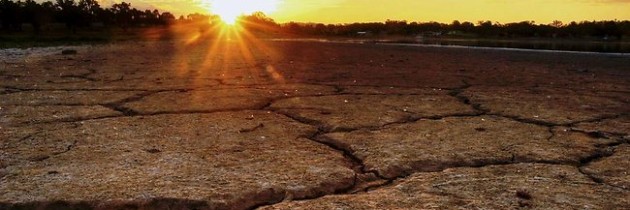COP21 In Paris Doesn’t Define Climate Change Action
As we get closer to the 21st Conference of the Parties (COP) in Paris in November and December, the thought pieces, blogs, and public lectures have been piling up. What will success at COP21 look like? What will it mean for global climate efforts? What if it is a failure? But is all this time, energy, and media scrutiny misplaced? As someone who has been working in the Australian climate change adaptation space for the past four years, I believe so. While the outcomes of COP21 will undoubtedly impact the world’s ability to significantly lower global emissions, many are unaware that a lot of the groundwork on climate action has already begun at a local level across the country.
For the past three decades, the international community has debated the veracity of climate science, employed market mechanisms for reducing carbon emissions (to varying success), and debated reduction targets, while Smaller Island Developing States (and later other developing countries) have pleaded for action to halt the climate impacts they have been experiencing over the past few years.
Australia is a laggard when it comes to emissions reduction, with a poor target to take to Paris and the political baggage of climate sceptics in key political positions.
What most Australians don’t know is that local councils have been developing Climate Change Adaptation Plans (CCAPs) since 2007, with well over 100 plans across the country. The Federal government may be dragging its feet, but local councils have been all over this for years.
The most recent council to release its CCAP was the City of Sydney. The adaptation strategy was developed with the input of internal and external stakeholders as well as the input of our Sydney University Research team (Professor David Schlosberg, Dr Simon Niemeyer and myself) who designed a Citizens’ Panel to contribute to the development of the CCAP.
The strategy now includes the concerns raised by citizens through that Panel, with citizen-endorsed actions and prioritised risks highlighted throughout. This policy development is independent of COP21, and has real implications for overcoming the challenges presented by climate impacts.
For the most part, CCAP development has evaded attention in Australia. The general public are largely unaware of the amount of work their local councils have done in this space, and a lot of that conscious ‘under-the-radar’ approach can be traced back to negative politics over climate change in the country.
Regardless of the outcome in Paris, local councils will continue to plan for the extreme weather events brought about by climate change, especially the ones they are already beginning to face such as prolonged heatwaves, severe bushfires and wild storm weather.
Furthermore, as pointed out at the recent Sydney Ideas event A Global Climate Deal in 2015, civil society has and will continue to play a huge role in building momentum for climate action.
Canadian author and activist Naomi Klein rightfully devotes chapters to the progress of social movements and grassroots activists across the world in achieving climate wins in her climate change bestseller This Changes Everything.
Increasingly, it is the efforts of local communities who Lock the Gate, participate in blockadia, divest, and campaign for climate action which creates the momentum needed to face the climate challenge.
And the momentum in Australia is not just underway in the adaptation space. The recent release of the movie Frackman and successful launch of ‘Powershop’ (which recently partnered with Oxfam) over the past year indicate that Australians are increasingly aware of the need to mitigate emissions, to reconnect with the Earth, and to work towards a non-polluting economy.
Recent research conducted for my thesis also indicates that Australians do not always distinguish between mitigation and adaptation specifically, but rather approach the issue with a focus on holistic, interconnected strategies to deal with the climate change problem.
Paris is not the be-all and end-all for global climate change action. Incremental changes over the past 10 years have delivered pockets of success all over the globe, and those will continue post-Paris regardless of what happens.
Why wait for the outcomes of Paris? There is plenty of engagement already taking place.
_______________
Lisette is a PhD candidate in the Department of Government and International Relations at the University of Sydney, specialising in climate change adaptation policy at the local government level across Australia. She also researches community consultation in adaptation planning within the Sydney Environment Institute.
Fonte: Huffington Post



